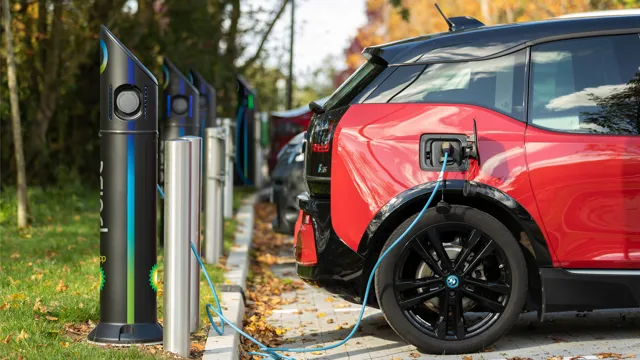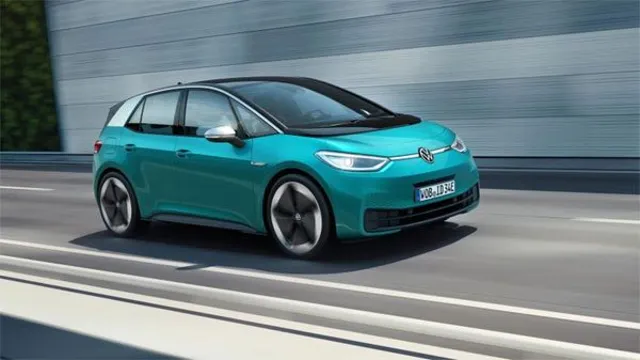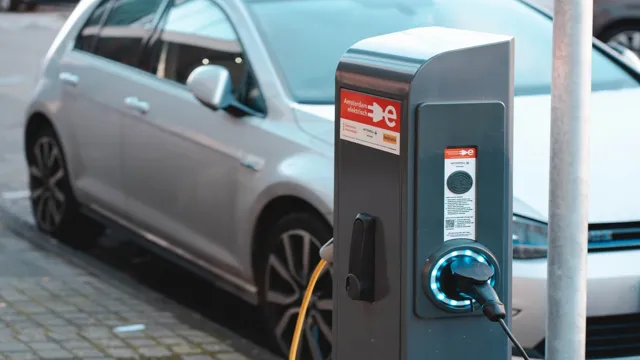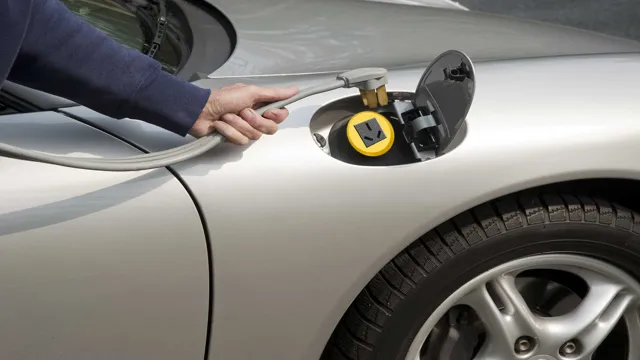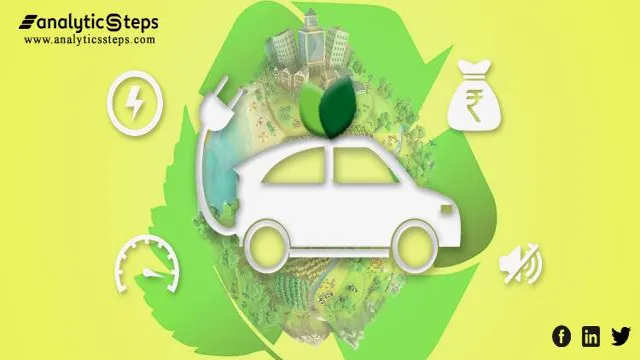Revving Up Your Benefits: Exploring the Perks of Electric Car Charging Benefit in Kind
Owning an electric car has become increasingly common, and with it comes many benefits. One of these perks is the tax benefit in kind for electric car charging. This means that instead of paying a high income tax rate, company car drivers who use electric cars for work-related travel get a reduced rate.
Sounds pretty great, right? But what does this actually mean for the average person? In simple terms, it means you get to save money! The less tax you pay, the more money you get to keep in your pocket. Plus, driving an electric car is much better for the environment, making it a win-win situation. Let’s explore this benefit in kind and all the ways it can positively impact your life.
What is Benefit in Kind?
If you’re considering an electric car as a company vehicle, it’s important to understand how benefit in kind (BIK) tax may apply to charging your vehicle. Benefit in kind is a tax on non-salary benefits provided to employees, and this may include electric car charging if it’s provided by an employer. Essentially, HM Revenue and Customs views the supply of electricity as a taxable benefit if it’s not reimbursed by the employee, and this applies regardless of whether the charging takes place at home or at work.
To ensure you’re not paying more tax than necessary, make sure you keep accurate records of your electric car charging expenses. Despite the potential for BIK charges, there are still many benefits to choosing an electric car for your company vehicle, including lower fuel and maintenance costs and reduced emissions.
Defining Benefit in Kind for Electric Car Charging
Benefit in Kind Benefit in Kind (BiK) is a tax that is levied on employees who receive certain types of non-monetary benefits from their employer, in addition to their salary. In the context of electric cars, BiK applies to the provision of free or subsidized charging for employees who use electric cars, as well as the provision of company cars. The BiK charge is based on the value of the benefit that the employee receives and is meant to serve as a tax on the employee for the value of the benefit that they receive.
BiK charges are calculated on a sliding scale, and the amount of tax that an employee pays depends on the value of the benefit that they receive. The BiK charge for electric car charging is currently lower than the charge for traditional petrol or diesel cars, as part of the government’s effort to encourage the adoption of electric cars. However, it is important to note that employees who receive BiK benefits are still required to pay tax on the value of the benefit that they receive, which can be a significant cost for some employees.
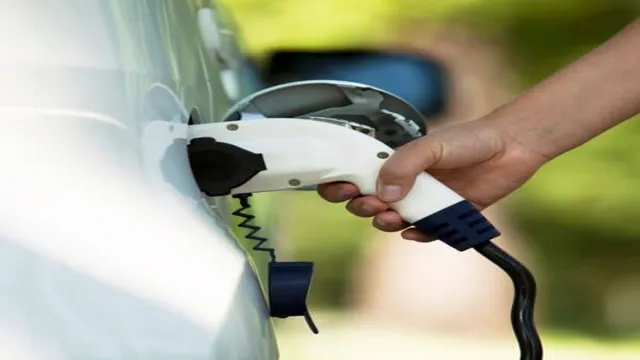
Importance of Electric Car Charger Benefit in Kind
Electric car charging benefit in kind is an important consideration for those that drive electric vehicles. This benefit in kind, also known as a taxable benefit, is the amount of money an employer pays for an employee to charge their electric vehicle at work. The UK government has introduced this measure to incentivize the adoption of electric vehicles and support the move towards a more sustainable future.
Employees that charge their electric vehicles at work are not only helping to reduce air pollution, but they are also saving money on their own personal energy bills. With the growing popularity of electric cars, it is essential that employers provide adequate charging infrastructure to support their employees’ electric vehicles. While electric vehicle charging stations can be expensive to install, the benefits for both employees and employers make it a worthwhile investment.
Cost Savings for Individuals and Corporates
Electric Car Charger Benefit in Kind When it comes to cost savings for individuals and corporates, investing in electric cars can be a smart move. Not only can electric vehicles save on fuel costs, but they also have the potential for significant tax benefits. One of the most important of these benefits is the electric car charger benefit in kind.
This benefit involves the provision of workplace charging for employees who drive electric vehicles. The employer is allowed to provide free electricity to charge the employee’s car, and the employee is not taxed for this benefit. This can lead to significant savings for both the employee and the employer.
Not only is it a great perk for employees, but it also helps to reduce the carbon footprint of the company, making it a win-win situation for everyone involved. If companies take advantage of this benefit and encourage their employees to drive electric cars, they can also reap the benefits of lower fuel and maintenance costs. In addition, they can reduce their carbon emissions, which can help them meet their environmental goals and improve their reputation among consumers.
For individuals, investing in an electric car can also lead to lower fuel costs and tax savings. In some countries, electric car owners are exempt from road taxes and other levies, which can save them a significant amount of money each year. In conclusion, the electric car charger benefit in kind is an important tax incentive that can help individuals and companies save money while reducing their carbon footprint.
It’s a great way for employers to encourage employees to drive electric cars and reduce their emissions. For individuals, investing in an electric car can lead to significant cost savings and tax benefits. As more companies and individuals recognize the benefits of electric cars, we can look forward to a cleaner, more sustainable future.
Environmental Impact and Tax Incentives
Electric car usage has become increasingly popular in recent years due to their reduced environmental impact. Incentives such as tax benefits have made electric vehicles more affordable for consumers. However, the importance of the Electric Car Charger Benefit in Kind should also be considered.
This benefit allows companies to install charging stations for their employees’ electric vehicles without it being considered a taxable benefit. By offering this benefit, companies can encourage their employees to switch to electric vehicles, reducing their carbon footprint and contributing to a cleaner environment. This benefit in kind is not only important for environmental reasons but also for companies to attract and retain top talent who value sustainable initiatives.
It is a win-win situation for both the environment and the company.
How is the Benefit in Kind Calculated?
If you have an electric car, you might be wondering how the benefit in kind (BIK) is calculated. The BIK is the amount of tax that an employee has to pay on any perks or benefits that they receive from their employer, such as a company car with free electric charging. The BIK for electric cars is calculated based on a few different factors, including the list price of the car, the electric range of the car, and the CO2 emissions produced by the car.
The percentage that is used to calculate the BIK is currently set at 0% for electric cars, which means that there is no additional tax to pay on the benefit of charging your electric car for free at work. As more people switch to electric cars, it’s likely that the BIK percentage will change, so it’s important to keep an eye on any updates to ensure that you’re not caught out with unexpected tax bills.
Calculating Benefit in Kind for Charging Infrastructure
Benefit in Kind Did you know that if you receive a company car with a charging point, you may be subject to a Benefit in Kind (BIK)? The BIK is essentially a tax that you pay on any non-cash benefits that you receive from your employer, and this may include charging infrastructure. The BIK is calculated based on the value of the benefit and multiplied by your income tax rate. In the case of charging infrastructure, the value is the cost of installation and maintenance of the charging point, as well as the amount of electricity you use to charge your car.
The good news is that the BIK for charging infrastructure is generally much lower than that for a company car, so you can rest assured that you won’t be hit with a huge tax bill. However, it’s important to keep track of your charging costs to ensure that you are accurately reporting the BIK to HMRC.
Factors Influencing Benefit in Kind for Electric Car Charging
The Benefit in Kind (BIK) for electric car charging is calculated based on a variety of factors. Firstly, the cost of the charging equipment and installation needs to be taken into account. The higher the cost, the higher the BIK will be.
Secondly, the type of charging equipment also plays a role in the calculation. Rapid chargers that can charge an electric car quickly will generally have a higher BIK than slower chargers. Thirdly, the location of the charging equipment is important.
Charging points located at an employee’s home will have a lower BIK than those located on company premises, as they are considered a personal benefit. Finally, the amount of electricity used and the cost per unit will also be factored in. The BIK will be higher if more electricity is used, or if the cost per unit is higher.
Ultimately, the BIK for electric car charging is determined by a combination of these factors, and can vary depending on the specific circumstances of each case.
Examples of Benefit in Kind Regulations for Electric Car Charging
The UK government has introduced several benefit in kind regulations that encourage electric car charging for employees. Companies can now provide workplace charging points for free, and the benefit is considered a non-taxable perk for employees. Additionally, there is no need for the employee to declare the perk on their P11D form, making the process simple and straightforward.
The government has also implemented a scheme that allows employers to claim back the full cost of installing charging points, up to a maximum of £350 per socket. These initiatives provide an excellent incentive for companies to promote electric car usage and contribute to reducing carbon emissions. With the growing number of electric cars on the road, these regulations provide a win-win solution for both employers and employees alike.
Switching to electric cars not only benefits the environment but also offers long-term cost savings, making it a smart financial decision for businesses and individuals.
UK Benefit in Kind Regulations for Electric Cars
Electric cars are becoming increasingly popular in the UK due to their low emissions and environmental benefits. However, there are regulations that electric car owners should be aware of when it comes to Benefit in Kind (BIK). BIK is tax that employees have to pay on perks they receive from their employer, such as a company car.
The BIK rate for electric cars is currently 1% and will remain low until 202 This means that if you receive an electric company car, you will only pay 1% of its value as tax. However, it is important to note that this is subject to change in the future and drivers should be aware of any updates.
Additionally, the government has recently made changes that allow employers to provide charging infrastructure for their employees without it being counted as a taxable benefit. This means that employees can charge their electric car for free at work, reducing their overall charging costs. These regulations are encouraging the switch to electric cars and making it easier for drivers to make the transition.
Comparison of Benefit in Kind Regulations in Europe
Electric Car Charging When it comes to Benefit in Kind regulations for electric car charging, there are various examples in Europe. In the United Kingdom, employers are allowed to provide free charging to their employees at work without having to pay for any Benefit in Kind taxes. However, if the employee charges their vehicle at home using their employer’s electricity, then the employer would need to declare the electricity as a Benefit in Kind on the employee’s tax return.
Meanwhile, in Germany, employees are not taxed for using their employer’s charging infrastructure if the charging time is less than one hour. In Denmark, electric car charging is completely exempt from Benefit in Kind taxes. Overall, the regulations for Benefit in Kind taxes on electric car charging appear to vary from country to country, highlighting the need for greater uniformity and clarity in this area.
Conclusion
In conclusion, the benefit in kind of electric car charging is not just measured in monetary savings but also in environmental benefits. As we continue to become more conscious of our impact on the planet, opting for electric cars and charging them sustainably stands to benefit us all. Plus, let’s not forget the undeniable cool factor of pulling up to a public charging station and recharging our eco-friendly ride.
So, let’s charge on towards a brighter future.”
FAQs
What is benefit in kind (BIK) for electric car charging in the UK?
Benefit in kind (BIK) is a tax on benefits received by employees in addition to their salary, such as the provision of a company car. In the UK, electric cars currently receive a reduced BIK rate of 1% for the tax year 2021-2022, making them an attractive option for company car drivers.
Can businesses claim tax credits for installing electric car charging points?
Yes, businesses can claim tax credits for installing electric car charging points through the Enhanced Capital Allowance (ECA) scheme. This provides tax relief on the cost of purchasing and installing eligible energy-saving plant or machinery, including electric vehicle charging infrastructure.
Are there any grants available for individuals to install home electric car charging points?
Yes, the UK government offers a grant of up to £350 towards the cost of purchasing and installing a home electric car charging point. This grant is available to homeowners, tenants, and landlords who meet the eligibility criteria.
How can electric car charging benefit the environment?
Electric car charging can benefit the environment by reducing greenhouse gas emissions. Electric vehicles produce significantly less carbon dioxide emissions than petrol or diesel vehicles. Additionally, if the electricity used for charging comes from renewable sources, such as wind or solar, then the entire lifecycle of electric cars can be carbon neutral.

